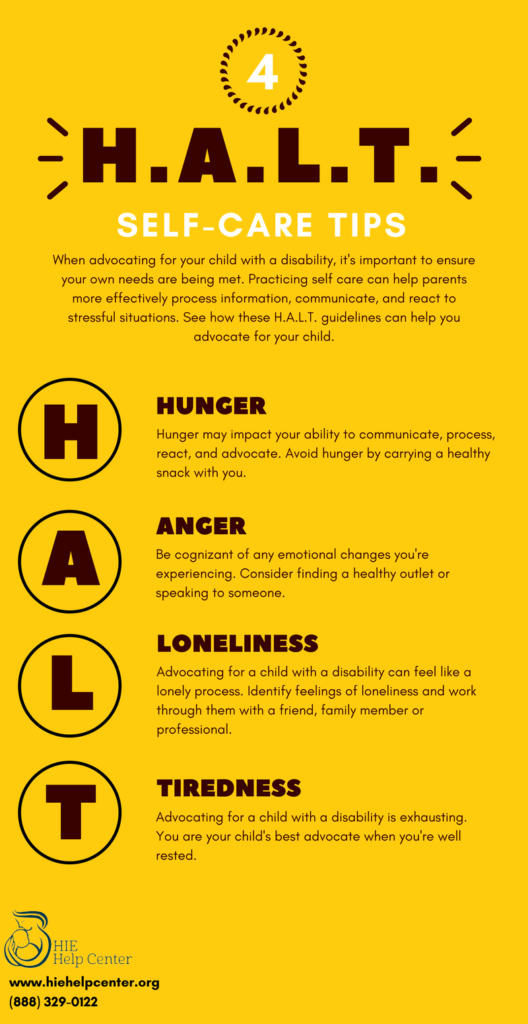Knowing how to successfully advocate for your disabled child can be difficult, especially when you’ve just received their diagnosis and are only beginning to understand their condition. However, there are real benefits to becoming a disability advocate for your child, especially if they have multiple complex medical needs.
What can parents do to advocate for their child?
The following are some helpful tips for advocating for your child’s treatment and care:
1. Ask questions
Go to your doctor with any questions you may have. Communicating your concerns with your doctor and gaining new information is an important aspect of advocating for your child. It may help to write down questions before your appointment. If your doctor is explaining something too quickly, or using words you don’t understand, let them know.
2. Request more info
Children’s health care needs and disorders can be complex, and sometimes confusing. Try to obtain a comprehensive diagnosis and analysis, wherever possible.
3. Share updates
If your child is seeing many different professionals, including specialists, therapists, teachers, etc., you will need to communicate important information and updates between professionals and with your primary care doctor. Some doctors may only release your child’s information to other specialists by your request.
4. Research and talk to professionals
Internet searches are a great place to get some general information about a specific condition, but can’t replace the in-depth and personalized knowledge that a conversation with a medical professional can provide. Reach out to professionals in your area and interview them before you sign on for their treatments or services to learn all about how they can help your child.
5. Observe and record
Closely observe your child’s highs, lows, symptoms, and other relevant details. You know your child best, so you will be the most qualified person to note things that are out of character for them. It might help to keep a journal of notable details to mention at future appointments. Also be sure to include observations from other care providers, such as occupational and physical therapists, teachers, other doctors, and other professionals that may be in contact with your child. Make sure that your records are as specific as possible.
6. Don’t settle for less than the best
If you’re unsure about a provider for any reason, keep looking for someone better. It can be helpful to get recommendations for care providers from guidance counselors, therapists, physicians, other parents, friends, or family.
7. Seek a second opinion
Families should be able to wholeheartedly trust their care providers, so if you are not satisfied with the level of care your child is receiving, you can always book a different specialist or raise your concerns with your child’s existing providers.
8. Explain applicable information to your child
Where applicable, use age-appropriate books, resources, or images to teach your child about their condition.
9. Learn about your insurance plans
Specialized care can be very expensive, and knowing what is and isn’t covered is extremely important to making sure your child continues to get the services they need. Some kinds of insurance cover specialty care within a certain distance of your home, and if you have to travel farther, some insurance companies might be responsible for covering that cost.
10. Work with your child’s school(s)
Because of laws like IDEA and the ADA, schools are legally bound to help provide services to children with disabilities. Often, schools can provide connections to occupational and physical therapists, speech-language pathologists, and assistive technology providers, among others, at little or no out-of-pocket costs to families.
11. If you need to, ask a lawyer
Lawyers can be your child’s disability advocate too! Some lawyers specialize in helping ensure that kids with disabilities get the services they need and deserve under the law. Others lawyers, like birth injury lawyers, help families obtain compensation if the child’s disabilities resulted from medical malpractice or a birth injury.
Self-care for parents and caregivers is essential!
To be the best disability advocate that you can be, it’s important to engage in self-care to ensure your own needs are also being met. If you are Hungry, Angry, Lonely or Tired, (HALT) – your mood and your energy levels can be affected. It is important to try and have a routine that involves adequate food, water, sleep and exercise because all of these things can impact how effectively you can process information, communicate with people, and react to stressful situations. To be an effective advocate, you’ve got to care for yourself too!
 About HIE Help Center
About HIE Help Center
HIE Help Center is affiliated with ABC Law Centers, a law firm that was established to focus exclusively on birth injury cases. A “birth injury” is any type of harm to a baby that occurs just before, during, or after birth. If a birth injury/subsequent disability could have been prevented with proper care, then it constitutes medical malpractice. Settlements from birth injury cases can cover the costs of lifelong treatment, care, and other crucial resources.
If you believe you may have a birth injury case for your child, please contact us to learn more. We are happy to talk to you free of any obligation or charge. In fact, clients pay nothing throughout the entire legal process unless we win.
Sources:
- How to Talk to Your Child’s Doctor. (n.d.). Retrieved on August 2, 2024, from https://www.parentcompanion.org/article/how-to-talk-to-your-childs-doctor/First Step
- Fassler, D. NAMI – Advocating for Your Child: 25 Tips for Parents. (2003). PDF.
- (2014, June 7). H.A.L.T. (Hungry, Angry, Lonely and Tired): A Self-Care Tool. Retrieved from https://healthypsych.com/h-a-l-t-hungry-angry-lonely-and-tired-a-self-care-tool/


Leave a Reply
You must be logged in to post a comment.